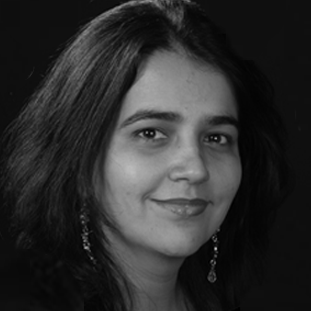World Health Partners: Harnessing Technology to Provide Preventive Health Services to Underserved Communities
Gopi Gopalakrishnan,
President
This helps negate heavy investment and build interconnected processes where medical professionals in urban areas are digitally connected with rural patients, local entrepreneurs or quasi-medical personnel who join as facilitators, and not to mention a supply chain that works on flow casting principles to ensure efficient inventory control. For instance, an eight year old was assisted by the WHP field officer through a telemedicine provider and got her free anti TB drugs from a network chemist in addition to, free regular consultations and tests from the network laboratories in the state of Bihar.“Such an approach creates a greater impact and builds long term sustainability,”states Gopi
Gopalakrishnan, President, World Health Partners.
A Sustainable Change
The local entrepreneurs and physicians play a key role in levelling the grounds between the organisation and the rural patients; thanks to their understanding of the community’s socio-cultural background. With the help of althea and althea plus (CE certified WHP systems), they are able to conduct screenings and communicate with distant doctors in real-time, where each prescription and interaction is stored in the electronic medical records under a unique and secure patient identity. A clinical coordinator appointed for quality assurance routinely screens these prescriptions in real time, raising immediate action with individual doctors in case of any anomaly. Moreover, the company’s central medical facility housing a panel of accredited physicians provides medical consultation to patients as well as training to local physicians, which not only benefit rural patients but also offer an opportunity for doctors and specialists to provide long distance healthcare consultancy.
An important feature of WHP’s operations is the call center that is particularly useful for cases that require aggressive follow-up over long periods as in tuberculosis treatment or antenatal care. The call center based in Patna
An important feature of WHP’s operations is the call center that is particularly useful for cases that require aggressive follow-up over long periods as in tuberculosis treatment or antenatal care
A Sustainable Change
The local entrepreneurs and physicians play a key role in levelling the grounds between the organisation and the rural patients; thanks to their understanding of the community’s socio-cultural background. With the help of althea and althea plus (CE certified WHP systems), they are able to conduct screenings and communicate with distant doctors in real-time, where each prescription and interaction is stored in the electronic medical records under a unique and secure patient identity. A clinical coordinator appointed for quality assurance routinely screens these prescriptions in real time, raising immediate action with individual doctors in case of any anomaly. Moreover, the company’s central medical facility housing a panel of accredited physicians provides medical consultation to patients as well as training to local physicians, which not only benefit rural patients but also offer an opportunity for doctors and specialists to provide long distance healthcare consultancy.
An important feature of WHP’s operations is the call center that is particularly useful for cases that require aggressive follow-up over long periods as in tuberculosis treatment or antenatal care. The call center based in Patna
currently handles case registrations, product placement, and reimbursement of claims, client satisfaction and alerts. The call center also oversees the functioning of the interactive voice response(IVR)system that WHP uses to deal directly with clients both for demand generation and treatment adherence. The financial settlement feature of the call center has led to other projects in different parts of the country availing the service.

Prachi Shukla, Country Director
Complementing its aforementioned social offerings, the organisation has set up systems and processes to integrate the data flowing from a range of sources, which helps in day-to-day management decisions as well as pattern recognition that will enable better policy decisions and directional changes, if necessary. It provides supervisory levels, a real-time view of performance status of individual providers and a time series to track progress so that programmatic decisions can be taken to improve performance. “We are enhancing our software to be used in public sector and adding more analytics for supervisors for better control,” concludes Prachi Shukla, Country Director, WHP. Backed by organisations like Bill and Melinda Gates Foundation, Merck For Mothers, USAID WHP is currently working with the Govt. of Rajasthan to provide remote consultation to sub centres, and undoubtedly, creating a sustainable change.
Prachi Shukla, Country Director
Complementing its aforementioned social offerings, the organisation has set up systems and processes to integrate the data flowing from a range of sources, which helps in day-to-day management decisions as well as pattern recognition that will enable better policy decisions and directional changes, if necessary. It provides supervisory levels, a real-time view of performance status of individual providers and a time series to track progress so that programmatic decisions can be taken to improve performance. “We are enhancing our software to be used in public sector and adding more analytics for supervisors for better control,” concludes Prachi Shukla, Country Director, WHP. Backed by organisations like Bill and Melinda Gates Foundation, Merck For Mothers, USAID WHP is currently working with the Govt. of Rajasthan to provide remote consultation to sub centres, and undoubtedly, creating a sustainable change.
